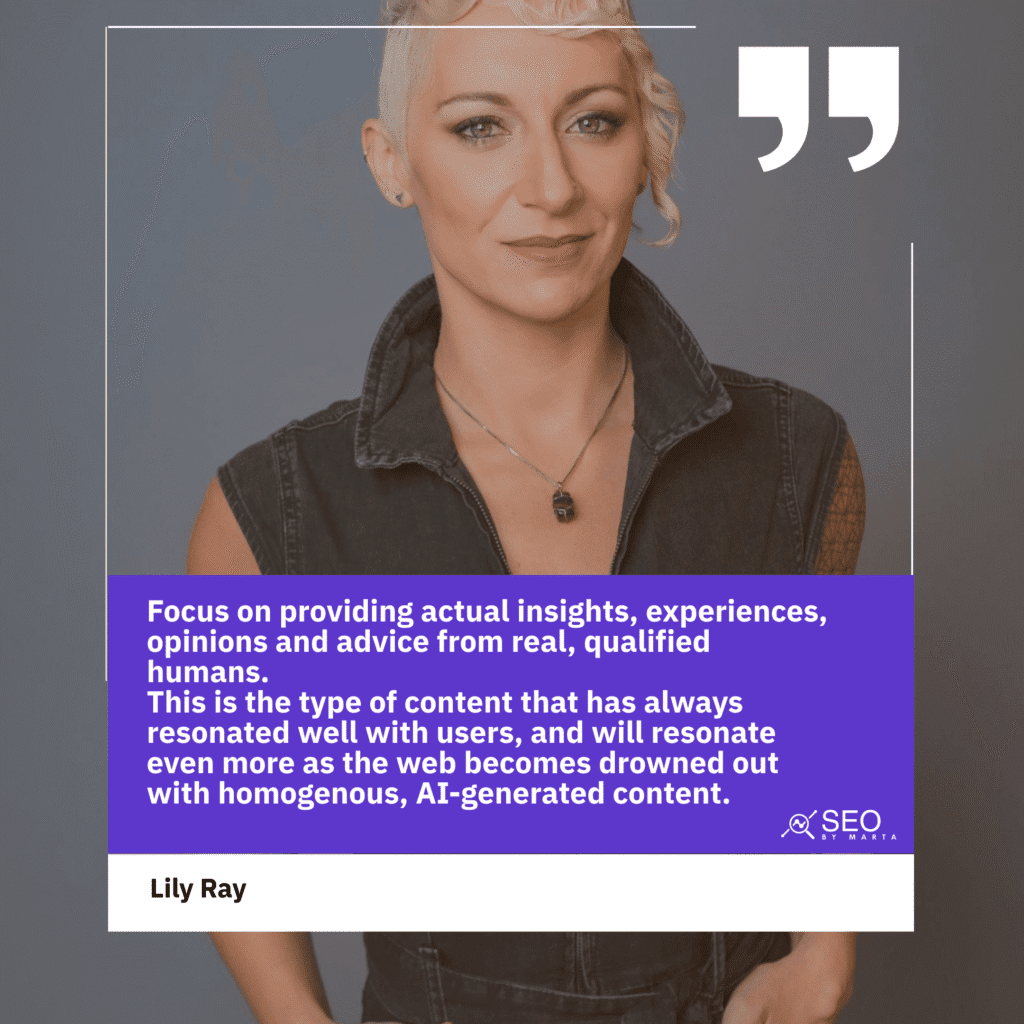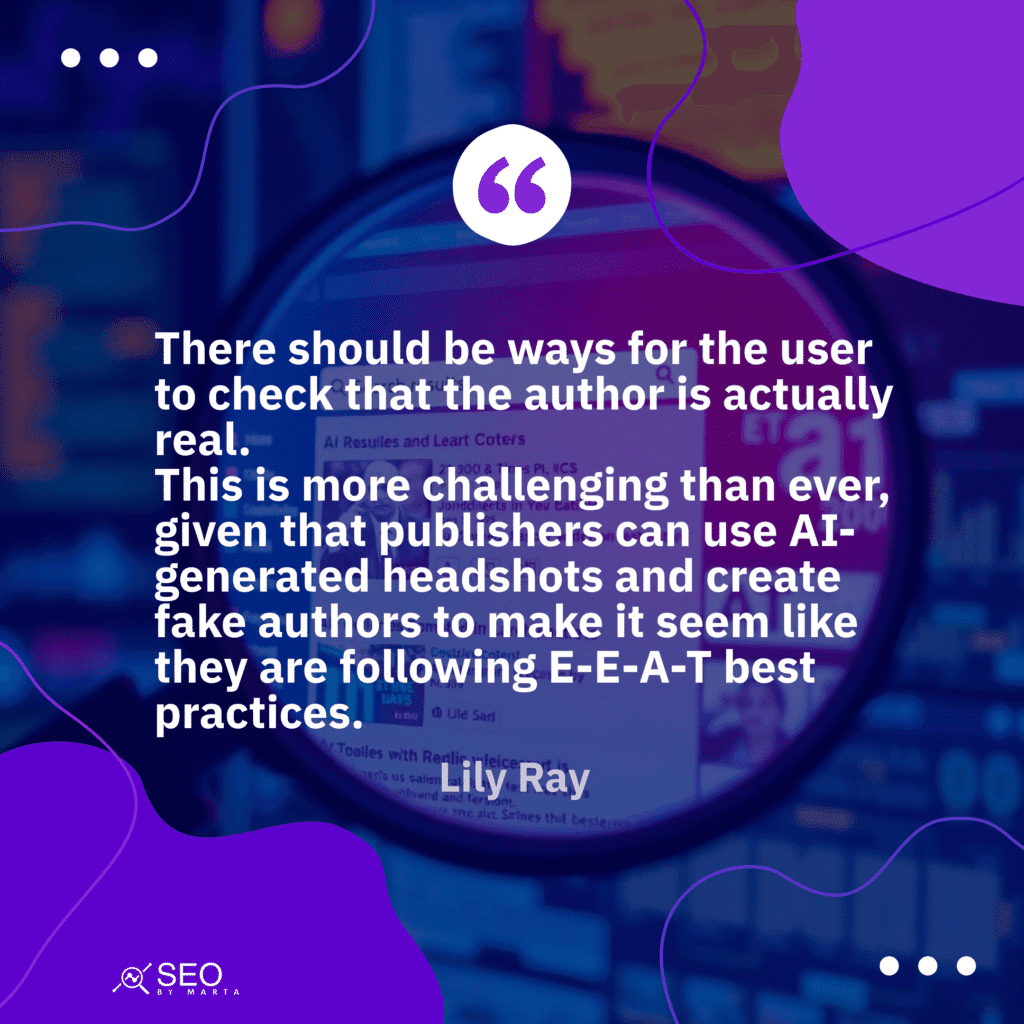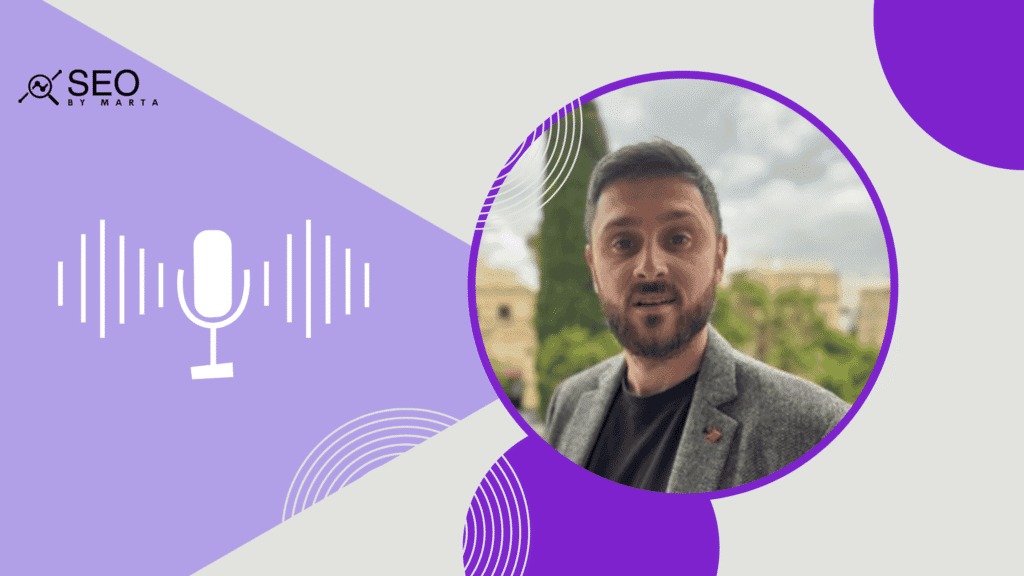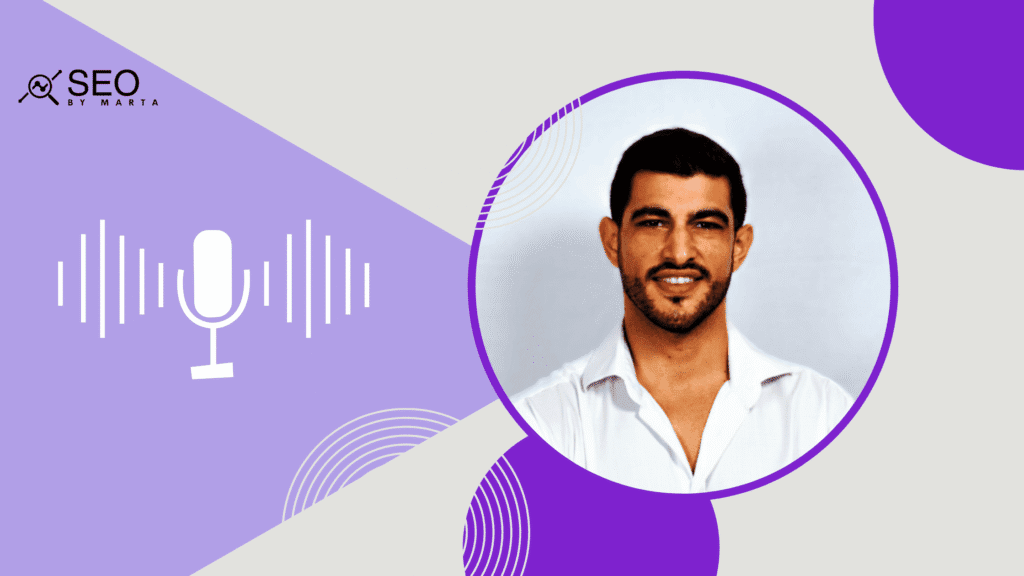About Lily Ray
Lily Ray is the Vice President of SEO of Strategy and Research at Amsive and one of the most respected voices in the SEO industry. With more than 15 years of experience leading organic search strategies for enterprise brands, Lily has built her reputation around E-E-A-T, content trustworthiness, and Google’s evolving quality standards. She’s known for her deep research into algorithm updates, her advocacy for ethical SEO, and her balanced approach to technology. As AI reshapes how content is created and consumed, Lily reminds SEOs that authentic expertise and transparent authorship are not outdated ideals but the foundation of long-term visibility and user trust.
Interview – Why Authentic Expertise and Transparent Authorship Still Matter in an AI-Driven Search World
In a time when AI can generate thousands of articles overnight, the SEO industry faces a critical question: How do we maintain credibility when anyone can publish at scale? Few experts have explored this intersection more deeply than Lily Ray. Her research consistently shows that Google’s systems continue to favor real experts, identifiable authors, and transparent brands, even as automation accelerates. In this interview, Lily unpacks what “the human signal” really means in SEO today, from how Google interprets expertise to how brands can safeguard authenticity in an era of AI-generated content.

Q: Lily, you’ve been vocal about the growing importance of “the human signal” in SEO. What does that mean in practical terms for brands and creators?
A: Luckily, it’s not that complicated: just focus on providing actual insights, experiences, opinions and advice from real, qualified humans. This is the type of content that has always resonated well with users, and will resonate even more as the web becomes drowned out with homogenous, AI-generated content.
This is not to say that AI can’t play a role in the content creation process; there are many tools and workflows that can help to create efficiencies and reduce menial work with AI. But at the end of the day, most users prefer reading content that feels authentic and human. I believe this will become increasingly true as more and more users begin to feel suspicious about which content was written by AI. It’s already happening:

Q: In an AI-driven search landscape, how can Google still distinguish between authentic expertise and machine-generated knowledge?
Google has the most data of any company in the world; and that is not hyperbole. Google can leverage thousands – maybe millions – of different signals to determine if a piece of content is authentic and engaging with its readers. Ironically, this process also involves machine learning and AI – but Google also uses human search quality raters to ensure its results meet the needs of real people.
Google has demoted “automated” content for decades now – this isn’t a new challenge for them. The difference is that content generated by Large Language Models often looks and feels a lot like content written by humans. That said, LLM-generated content often contains overly flowery language, hallucinations, factual inaccuracies, and generic, homogenous information that lack the nuance, originality, humor, and other characteristics that define great human-generated content. I believe Google is the most equipped company in the world to measure content quality by understanding which content actually resonates with its readers.
Q: You’ve long emphasized E-E-A-T. Has its meaning or weight changed as AI content becomes more common?
A: If anything, E-E-A-T has become more important. There are countless studies showing that AI content is prone to hallucinations, including on YMYL (your money, your life) topics. There are countless examples of even Google’s own AI Overviews getting sensitive information wrong. The news is full of new stories about users becoming addicted to ChatGPT or ChatGPT sending some users into a state of psychosis. As these concerns grow, users will naturally begin to seek out accurate, helpful, informative content written by real humans with credentials and real-life experience.

Q: Transparent authorship seems to be making a comeback. What elements should a brand or publication include to build author credibility effectively?
A: There should be ways for the user to check that the author is actually real. This is more challenging than ever, given that publishers can use AI-generated headshots and create fake authors to make it seem like they are following E-E-A-T best practices. But providing the user with links to resources they can use to confirm that the author is not only real, but established and respected in their space (LinkedIn profiles, personal websites, awards they’ve won, presentations they have given, etc.) can help promote trust.
Q: Many SEOs are excited about AI tools that speed up content production. Where do you think automation helps and where does it risk eroding trust?
A: It’s all about what’s in the output. As long as the output still contains original ideas and expert opinions and insights, it’s totally fine to use AI to assist with research, ideation, formatting, editing, etc.
Q: How do you personally evaluate content quality in 2026 beyond surface-level metrics like word count or optimization scores?
A: Engagement: social shares, comments, links, traffic from various sources, virality, Google Discover performance, discussions on forums, etc. The signals that represent that real humans are enjoying the content (or at least, responding to it!)
Q: How can individual experts — consultants, medical professionals, lawyers, creators showcase their credibility in ways that Google and users both recognize?
A: Start building a personal brand online. Claim all the listings that mention your name and ensure your name and your personal brand/business are listed in the directories and websites where experts in your field are commonly included. Provide clarity about your skills and include links to the work you have done, such as presentations, contributions to medical, legal or scientific journals, etc. Think of this as your personal portfolio, but available for the whole world to search for and verify.
Conclusion
Lily Ray’s answers remind us that SEO has always been, at its core, about people. Algorithms evolve, and AI keeps rewriting the rules, but trust, expertise, and genuine human perspective never lose their value.
Lily’s view of the future is pragmatic. She’s not calling for a smarter version of SEO and content creation, where technology supports creativity, not replaces it. Her general message? Authentic voices still win.
In a search results flooded with AI-generated content, Lily challenges brands and creators to double down on what machines can’t fake: experience, empathy, and credibility. The more automated the search becomes, the more human trust will matter. And that’s the paradox of modern SEO and the reason Lily Ray’s voice is one every marketer should be listening to.




